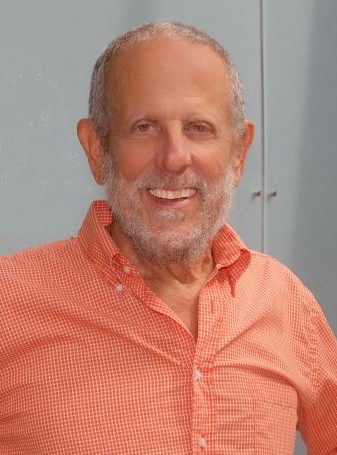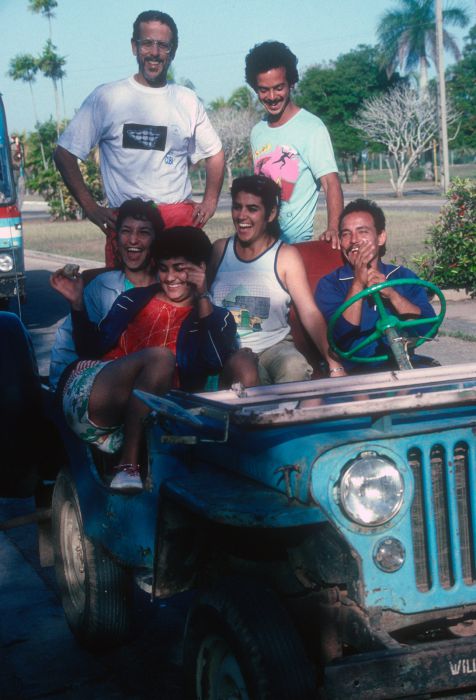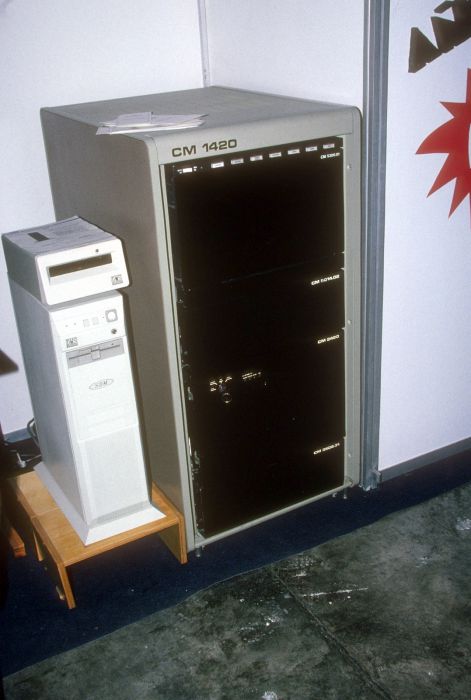
Larry Press, a professor of information systems at California State University, Dominguez Hills (CSUDH), is encouraged by the thawing of poor relations between the United States and Cuba.
He has worked for years to understand and improve the state of the Internet in Cuba and is “hopeful that this is a good start.”
“While dropping the trade embargo would require congressional action, the Obama Administration has made an important concession that affects the Internet,” said Press. “U.S. companies are now free to sell communication infrastructure and information technology products and services to Cuba. They justify that exception to the embargo in hope that improved Cuban Internet access would lead to a more democratic nation.”
Building the Template
Beginning in the early 1990s, Press and colleagues from Arizona State and Stanford defined a framework to characterize the state of the Internet in a developing nation. They used their framework in survey research and case studies of Cuba, Singapore, India, China, Russia, Nepal, Bangladesh and Vietnam, and it was used by the International Telecommunication Union (ITU), World Bank and others in their studies.
Their studies were funded by the DOD (Department of Defense), the ITU and UNCTAD with cooperation from the nations being studied.
“A team of two to five of us would visit a nation, interview government officials, people in the telecommunications and Internet industries, as well as users in industry, education and health care in preparing a case study,” he said.
Press was also an organizer and instructor in the World Bank Developing Nation Workshops, which were held in conjunction with the annual conferences of the Internet Society. The workshops trained over 2,500 networking professionals from nearly every developing nation.
Core Problems
Press’ Cuban experience dates back to the time he presented a paper at Cuba’s annual Informatica Conference in 1992. He subsequently visited Cuba three times, published two reports on the Cuban Internet for the RAND Corporation, and worked on two Cuban projects funded by the United States Agency for International Development (USAID). He currently pens a blog on the Internet in Cuba.
“The Cuban Internet is in a sorry state. The country has little Internet infrastructure. There is an undersea cable to Venezuela that runs to Cuba, but little fiber on the island,” said Press. “Most user connections are dial-up and the cell network is obsolete 2G technology. There are 573 public access computers in 155 locations throughout Cuba, but they are slow and an hour of Internet access costs the average Cuban a week’s pay.”

Freedom House ranks Cuban Internet freedom 62nd among the 65 nations they survey and the ITU ranks Cuban information and communication technology development last among 32 nations in Latin America and the Caribbean.
Historically, there are three primary causes for the “sad state” of the Cuban Internet, according to Press: the US trade embargo, Cuban poverty at the time of their connection to the Internet, and the government’s fear of information.
Universities in Cuba do have broadband, said Press, but none have “anything close” to the extensive high-speed LAN or gigabit connections found at U.S. universities.
“If you go to a Cuban website it looks like it was created in 1995. Students in Cuba don’t have access to all the information that’s on the Internet. People working in the medical field can’t fully participate in what’s going on in the world regarding clinical work and research,” he said. “Many Cubans have developed workarounds, but it’s not enough. They don’t have the equipment or the speed needed on today’s Internet. They are very poor, but because of that, they’re very smart and resourceful.”
Finding Solutions
Press believes a quality and accessible Internet in Cuba needs to develop over time; that Cuba cannot afford ubiquitous, modern Internet infrastructure now and needs low-cost interim action today while planning for the long term.
“If the government is sincere in its professed desire to create a modern Internet, there are low-cost ways they could improve Internet access in the short term,” said Press. “For example, roll out relatively low-speed rural access points using terrestrial wireless and satellite links, and legitimatize and support the local WiFi networks and the well-organized ‘sneaker net’ that delivers weekly entertainment and other material on flash drives, and provide high-speed connectivity to universities and the country’s medical network.”
Press believes Cuba should also legitimatize and support its software developers in the export of software and software services to the U.S. and other nations, and that “Cuba has a lot of well-educated, under-employed developers and President Obama has cleared the way to import their work.
“They should immediately begin planning for the long term. They have almost no infrastructure today, so they can plan for the technology that will be available in five to 10 years, leapfrogging today’s equipment and planning for things like 5G mobile access and high frequency wireless, and keeping an eye on less certain things like the satellite constellation projects at SpaceX and OneWeb.”

More important than technology, Cuba needs to address questions of infrastructure ownership and regulation, according to Press. He also said that the Obama administration (and many Republicans) sees Cuba as a “potential market–a business opportunity,” but Press is more interested in what Cubans can sell to the U.S. than visa versa.
“The conventional wisdom on infrastructure ownership is that they should invite foreign companies to install infrastructure, a path many developing nations have followed, but with marginal success. But it is not certain that Cuba, with its current government and weak economy, could attract foreign investment,” said Press. “Even if it could, I would hate to see Cuba’s Internet future in the hands of companies like AT&T or Comcast.”
In Cuba today, all telephone, mobile and Internet service is provided by a Empresa de Telecomunicaciones de Cuba S.A (ETECSA), said Press, and that “ETECSA is usually described as a state-owned monopoly that is privately owned by a murky collection of investors–rumored to include Fidel and Raúl Castro–and regulated by the Ministry of Communication.
“I surely would not want to see retail service in the hands of ETECSA or any other monopoly,” he said. “Government should provide wholesale access to its infrastructure to competing retail service providers.”
Press believes Cuba should also consider a broad range of infrastructure ownership policies, such as municipal ownership of infrastructure as in European cities and the United States, that the government should function as a venture capitalist, like in Singapore, and as a national backbone provider as in China and India.
Press has not travelled to Cuba for several years, but he has worked on two Cuban projects for USAID in recent years. He could have travelled to Cuba for either project, but was frightened by the Alan Gross case.
“My wife wouldn’t let me go, and I think she was right. I would have been a bit afraid of getting thrown in jail,” he said. “But things have changed. Alan Gross is back home and rapprochement is in the air. I expect to be back in Cuba soon.”